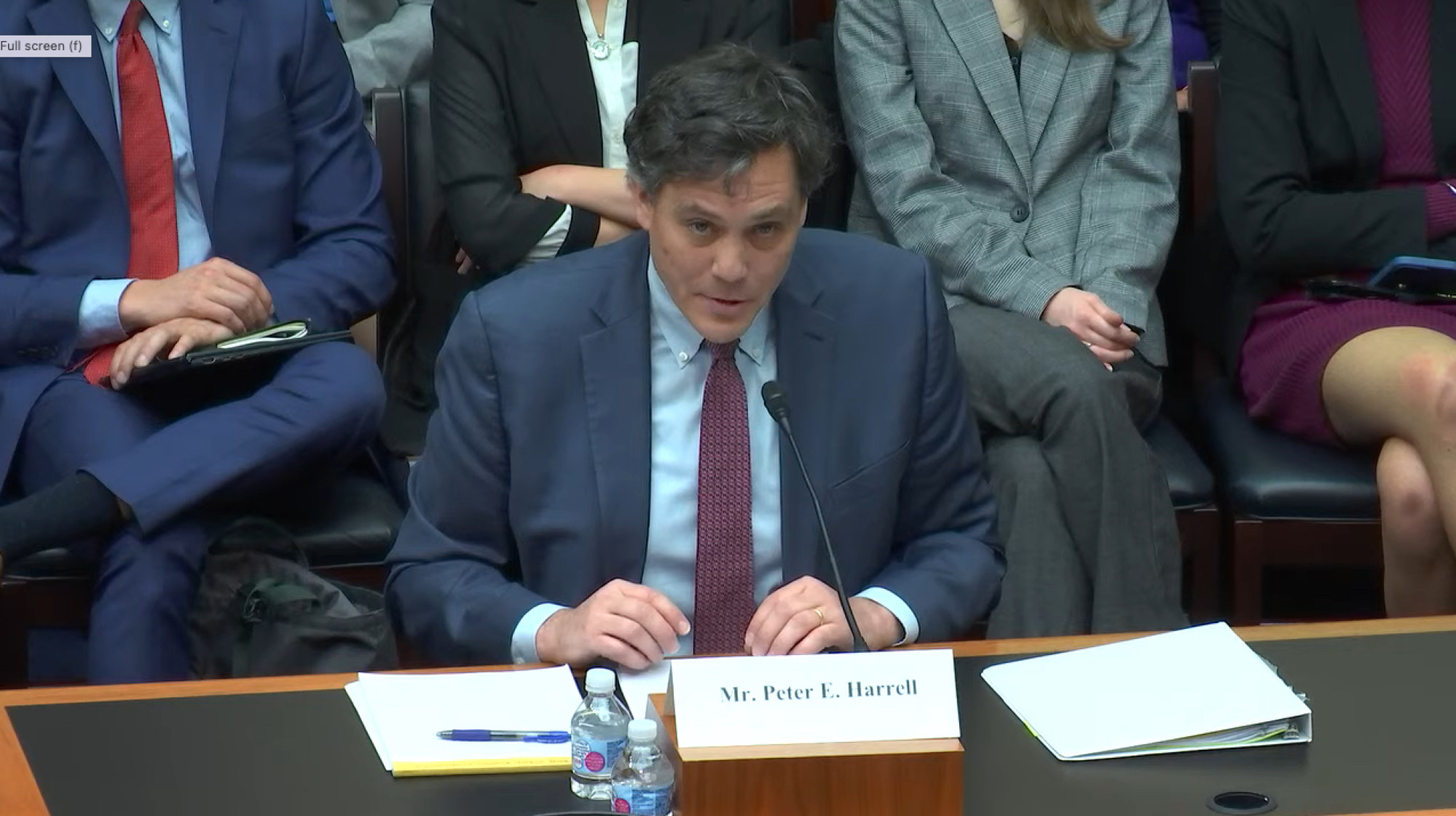
US lawmakers urged to boost American alliances and trade blocs after Chinese balloon row
- Top concerns about Washington’s efforts amid Beijing’s competitive advances aired at House hearings by financial services and armed services panels
- Biden administration should renegotiate Comprehensive and Progressive Agreement for Trans-Pacific Partnership, ex-Trump official says
The Chinese balloon shot down last week by the American military became a main talking point at a US congressional hearing on Tuesday about economic challenges from Beijing, in which former government officials urged lawmakers to bolster ties with allies and trade blocs to counter China’s growing influence.
The hearing, focused on “combating the economic threat from China” and convened by the House Financial Services Committee, took place as the world’s two largest economies stay locked in an increasingly tense competition spanning a wide range of pursuits.
“China is not an ally or a strategic partner. They are our competitor and pose the single greatest threat to America’s global standing,” McHenry of North Carolina added.
Apart from posing a national security threat to the US with its balloon, Beijing sought to challenge Washington’s economic and geopolitical leadership by collecting new trade partners around the world, testified Clete Willems, a partner at the law firm Akin Gump Strauss Hauer & Feld.
Tech war fallout threatens to derail China’s ascent to No 1 economy
The CPTPP is the successor to the Trans-Pacific Partnership, from which Trump withdrew as one of his first actions as US president in 2017.
“If we are serious about competing with China on supply-chain issues, we need a serious trade policy to match.”
Strengthening ties with Taiwan was a key subject in a separate hearing convened by the House Armed Services Committee, which featured retired admiral Harry Harris, former commander of US Pacific Command, as a witness.
China hits out at US for downing suspected Chinese spy balloon
Taking aim at Biden’s efforts to restrict hi-tech exports to China, several witnesses – including Richard Ashooh, a former Commerce official during the Trump administration – said a more comprehensive approach was needed. They added that the effort to stop selling some advanced technologies to China should be done in coordination with US allies.

He warned that if the US failed to raise its borrowing limit and triggered a default, it would undercut the confidence of American allies and partners.
“A default would give the CCP a priceless talking point about the irresponsibility of the United States,” Harrell stated in his written testimony.
Acrimony between Republicans and Democrats over the US federal debt ceiling came up repeatedly throughout the financial services committee hearing, with the Democrats using the issue to accuse their rivals of boosting China’s geopolitical clout.
China must be a world leader in science and tech or risk being ‘strangled’: Xi
“That’s going to require us to both be competitive … in what can we do to make the dollar attractive, and it’s going to require us to throw some sand in the years of efforts by the Chinese … to try to build out these alternative payment rails,” Harrell said.
Eric Lorber, a former Treasury official, also rejected the idea that China’s digital currency would threaten the US dollar in the next few years.
“The general concern with the digital yuan in particular is related to transparency and the question about what type of data or information the Chinese could have access to given the widespread implementation and usage of the digital renminbi,” Lorber said.
Additional reporting by Khushboo Razdan in New York


